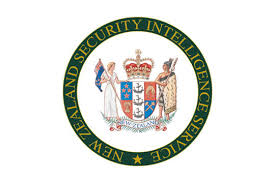by Richard Sanders, Staff Writer
In recent years, the child welfare system in New Zealand has come under scrutiny for its handling of cases involving the removal of children from their families. While the protection of vulnerable children is paramount, there are growing concerns about the actions of some social workers who appear to operate with an overzealous approach. This article explores the implications of such practices, particularly when decisions to place children into foster care are made based on flimsy evidence and perceived risks rather than concrete threats.
The Role of Social Workers
Social workers are tasked with the critical responsibility of assessing family situations, determining whether children are safe, and making decisions that can have lifelong effects on those children. Their role is undeniably challenging, often requiring them to make quick judgments in complex situations where the stakes are incredibly high. However, when the threshold for intervention is set too low or the evidence too weak, the consequences can be severe.
The Risks of Overzealous Intervention
Reports have surfaced indicating that some social workers may act on subjective assessments rather than clear, objective evidence. This can lead to the premature removal of children from their families, with decisions influenced more by a culture of caution than by actual risk. The criteria for intervention can sometimes appear vague, leaving families vulnerable to actions that might not be warranted.
The emotional and psychological toll on children who are removed from their homes cannot be overstated. Being placed in foster care often involves significant upheaval, as children are taken from familiar surroundings and placed with strangers. This transition can lead to feelings of abandonment and insecurity, and for many children, the foster care experience can be fraught with its own risks—such as instability, neglect, or even abuse.
The Consequences of Foster Care
While foster care can provide a safe haven for children in truly dangerous situations, it is not without its flaws. The system can be overwhelmed, leading to a lack of adequate placements and resources. Children may find themselves in homes that are not equipped to address their unique needs, further complicating their emotional and psychological development. Studies have shown that children in foster care are at a higher risk for a range of negative outcomes, including educational challenges, abuse, mental health issues, and difficulties in forming stable relationships.
The Need for Balanced Approaches
To better protect children, New Zealand’s child welfare system must balance the need for intervention with the importance of preserving family integrity. This calls for clear guidelines and training for social workers, ensuring that decisions are based on robust evidence rather than assumptions or societal biases. Collaborative approaches that involve families in the decision-making process can also foster better outcomes, as they are more likely to engage with support services when they feel heard and respected. The well-being of children should always be the priority in any child welfare system. However, it’s crucial that interventions are grounded in solid evidence and a deep understanding of the family’s context. Overzealous actions by social workers, while often well-intentioned, can lead to unnecessary trauma for children and families. Moving forward, a more nuanced approach would be in the best interests of the children in New Zealand.














